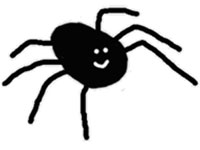Insect-inspired tech leads to spiderman gloves
The superhero dream is now closer to reality

If you have never dreamed of being a real-life Spiderman, then it is likely that you might not be interested a new technology that promises gloves that will let you climb up walls.
However, the fact that you are still reading confirms that you have. So here is what you need to know.
A new device that is inspired by a beetle has allowed engineers to use the adhesive power of water to create gloves that will let you climb up glass, wood or brick walls.
The team of engineers at Cornell University, in New York - funded by the US military - have invented a palm-size device that creates a reversible adhesive bond, inspired by the Palmetto tortoise beetle from Florida.
Professor Paul Steen, a biomolecular engineer at Cornell University, made this latest amazing discovery by pumping small droplets of water – around 1,000 times smaller than the width of a human hair - through microscopic holes in a flat plate, finding that the surface tension of the water enabled him to glue the plate to another surface.
The plate can then be immediately switched to becoming 'unstuck' by changing an electric field around it.
3-inch wide pad holds 20-stone man
Sign up for breaking news, reviews, opinion, top tech deals, and more.
Steen believes it is now possible to create a 3 inch wide pad that could hold up to 20 stone, telling The Telegraph: "What we have is the ability to make strong but reversible bonds and this idea of creating clothing that can give a Spiderman type ability comes from that.
"At the moment the only way it is possible to climb up the side of buildings is to use suction cups which require ungainly and heavy vacuum pumps and a lot of power. We are exploiting the cohesion of water rather than having to create the suction ourselves.
"Epoxy-strength adhesive that is switchable doesn't exist, but we realised the beetle was showing us the way. Our inspiration comes from the beetle, but our control of the "bond" is quite different."
The Professor added: "At the moment we don't know what DARPA [Defence Advanced Research Projects Agency] envisages the end use of our research will be, but having the ability to stick and release a load easily could have a number of uses."
Via The Telegraph
